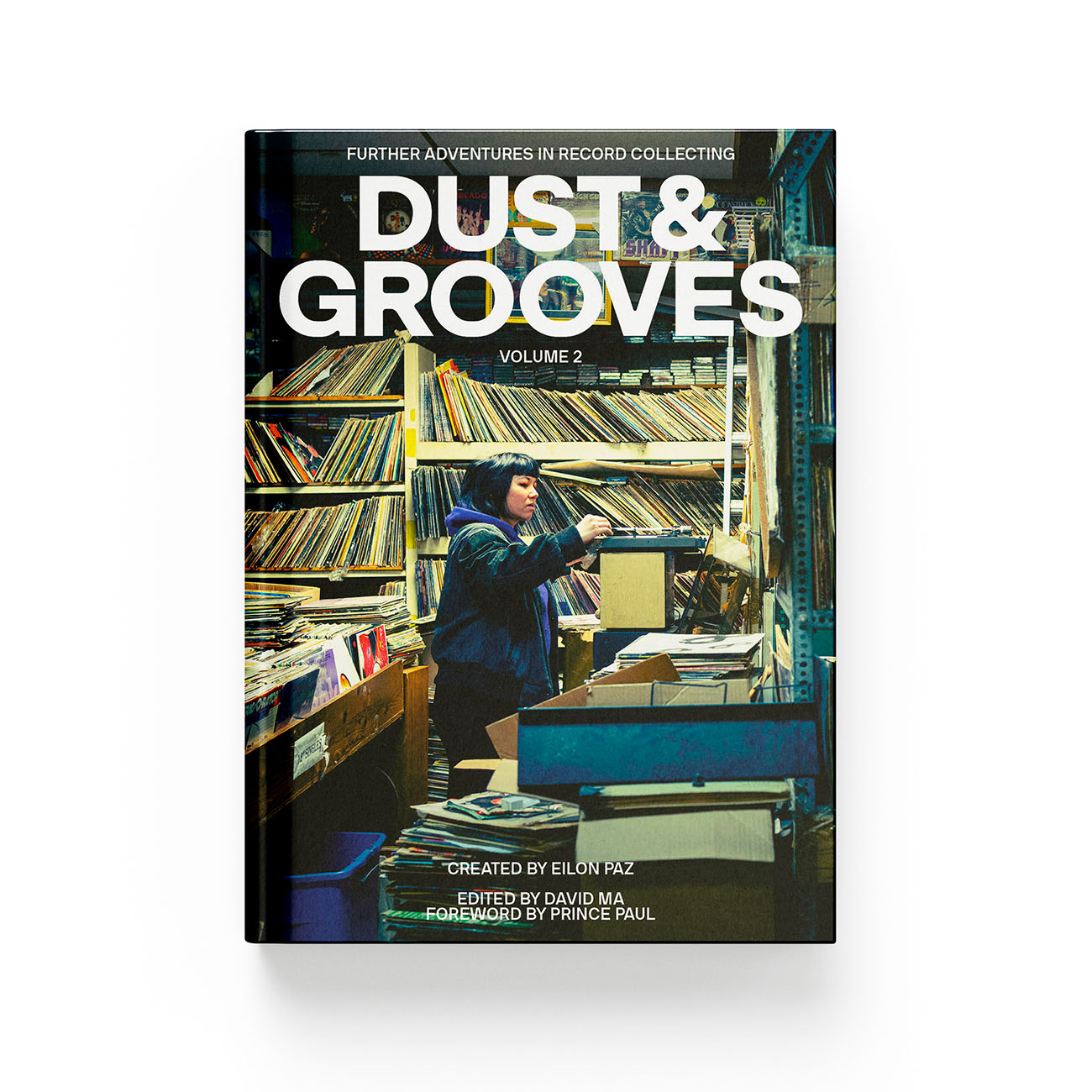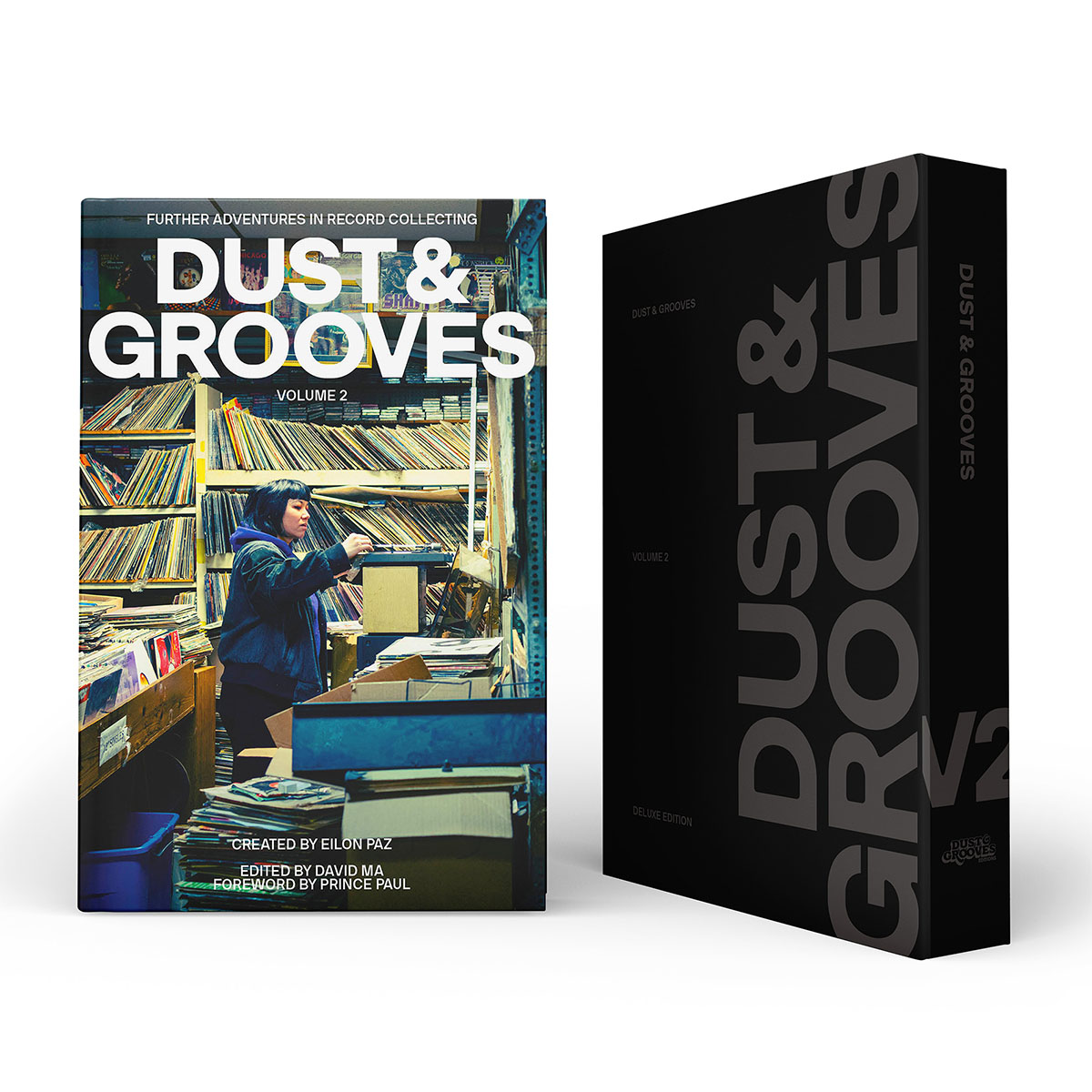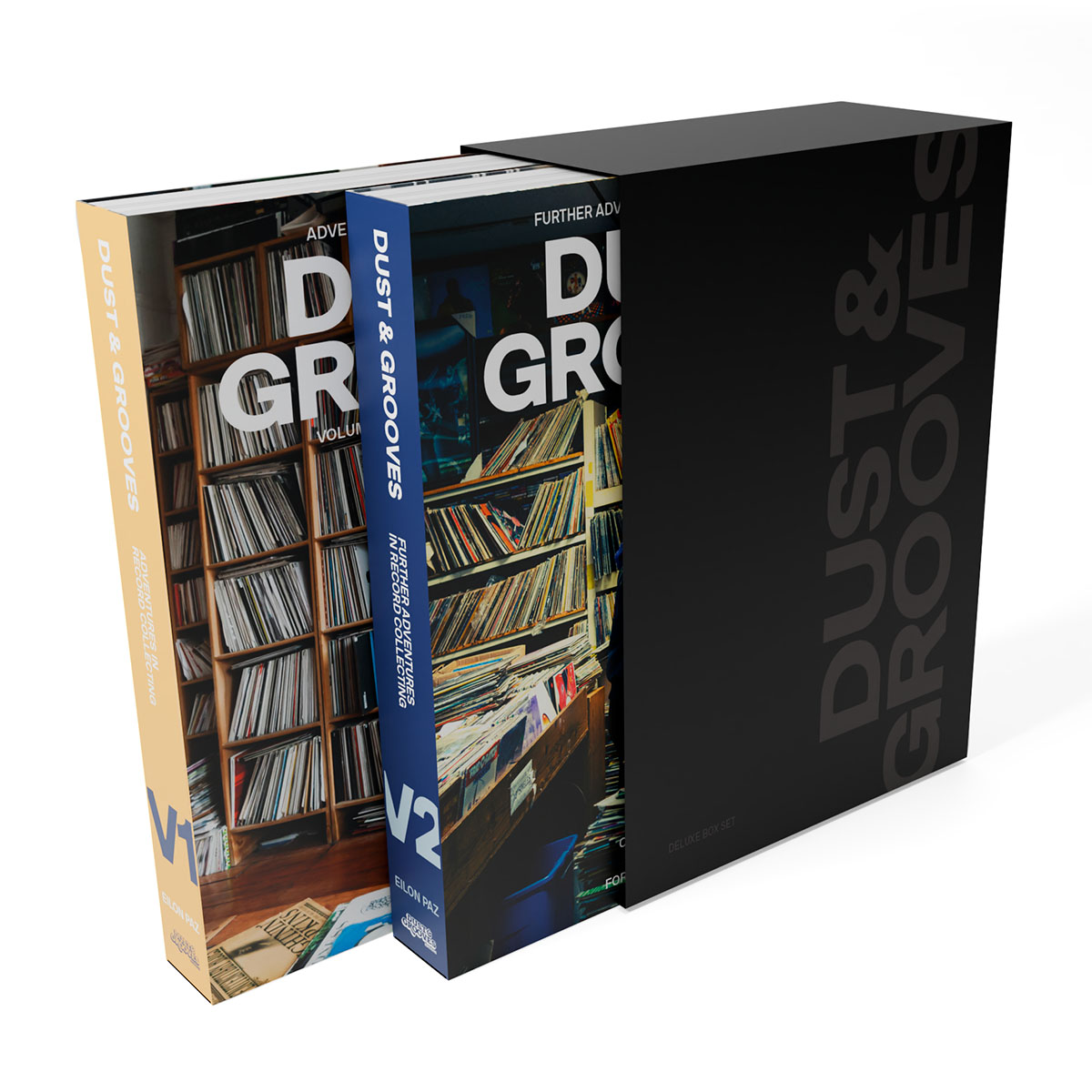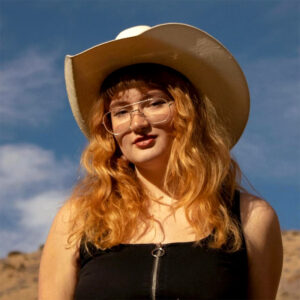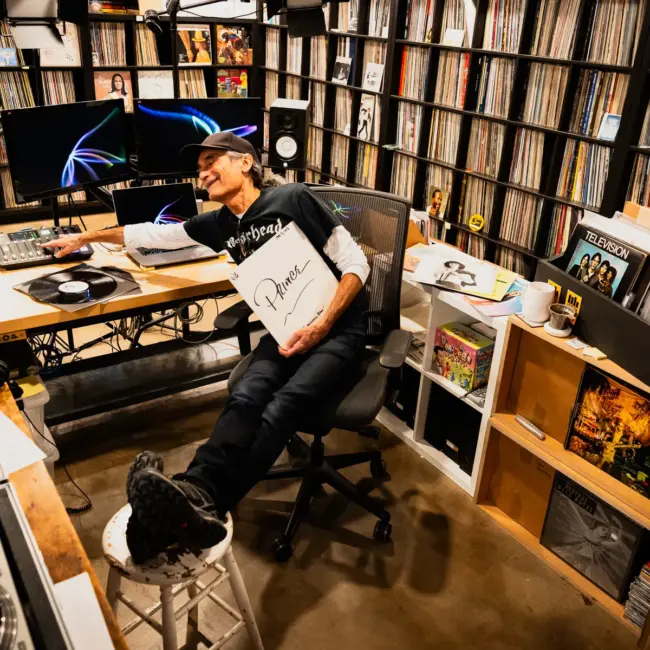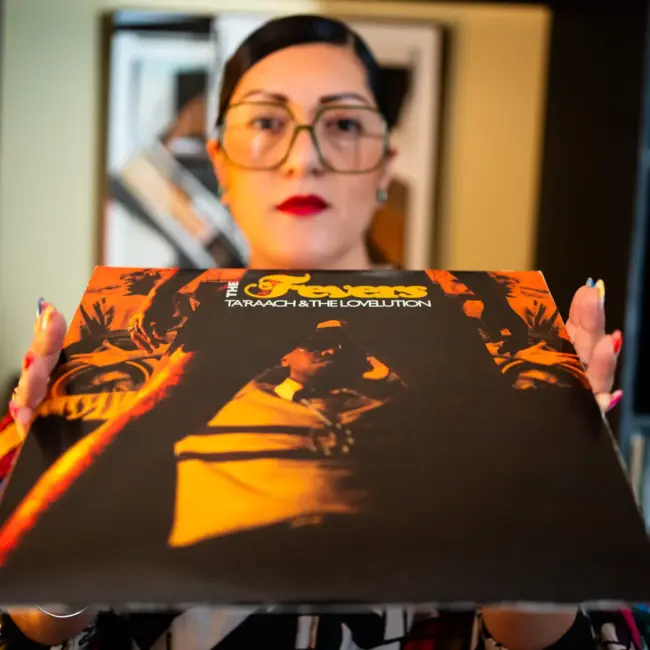Whatever shell Caroline Cardenas once had is long gone. The Miami DJ and collector has such an infectious passion that it’s hard to believe she is a stranger to anyone; her attention and energy have a radiant warmth that is easy to bask in.
Raised by immigrant parents from Cuba and Honduras, her childhood was marked by Cuban poetry and Latin music, culminating in a love of music and the arts that has lasted well into the present. Her appreciation for vinyl especially came into focus once she started as an event planner at Technique Records. One day she was roped into doing a DJ set at Dante’s HiFi, a vinyl-listening bar in Miami with near-nightly DJ sets. “I had already done a couple of DJ sets here and there just for fun, not a lot of blending—more of like, just fading in and fading out tracks. But for Dante’s that night, I practiced for a whole two weeks. I’m like, ‘I need to present something credible…’ When I did it and Rich Medina saw what I did, he came up to me, and he’s like, ‘Girl, we gotta put a battery pack in you! You’ve got something going on here, you know?’ And from that moment on, a spark ignited and I became really passionate about DJing.”
Though she was only born in the 1990s, her collection is full of 1980s odes and danceable tracks, one of the key elements of her collection. When looking for new vinyl, she tends to lean towards synth-heavy oddities, but she never shies away from moodier lounge sounds or energetic jazz. Even the album art that she is drawn to is telling of her character: Lucifer’s fiery head, a sandaled man with his marimba, and a powerful Jheri Curl. Her collection is multidimensional in a way that holds true to her personality: ever-accepting and evolutionary in its own journey.
This is a testament to her enthusiasm; she DJs in a way that engages every listener and body on the dance floor. But more than that, her record collection is a tribute to every weirdo who’s ever obsessed over a damn good beat.
“I’m realizing in my life now that things feel so mass produced and are not as timeless as they were in the past, and as I’m reflecting on the history of music, it truly feels like vinyl and physical formats really helped music and artists become timeless."
Caroline Cardenas Tweet
Tell me about your background, and how music played a part in your upbringing.
I’m 31 years old, born and raised in Miami by immigrant parents. My mother fled Cuba as a political refugee in the 1980s during the Mariel boatlift, and my hard-working Honduran father came to the US during that same time for better opportunities. Growing up, I was raised primarily by my proud Cuban mother, who made sure that I learned about my Cuban history through music, reading, and reciting poetry—particularly the works of Cuban writer Jose Marti. My father and his side of the family, whom I would visit on the weekends, always threw birthday parties and family reunions with lots of Latin music, nonstop dancing, and delicious Honduran food being shared. Looking back at it now, they definitely taught me the importance of community and influenced my love for music and the arts.
I have always loved to sing and dance. My earliest memory of music was singing along to Selena songs as a toddler, a memory that my grandparents enjoyed retelling every time I visited them in New Jersey. In school, I was in choir, a lead anchor in the broadcasting class, and I performed in poetry recitals and school plays.
As an adult, I received a Bachelor of Arts in English at FAU. I did photojournalism as a freelancer in LA from 2015-2016 and in Miami from 2016-2018, with a focus on the music industry and underground culture. Music, art, literature, and performance have remained constant passions in my life. Vinyl came into my life five years ago when I began working at Technique Records, something that I’m truly grateful for.
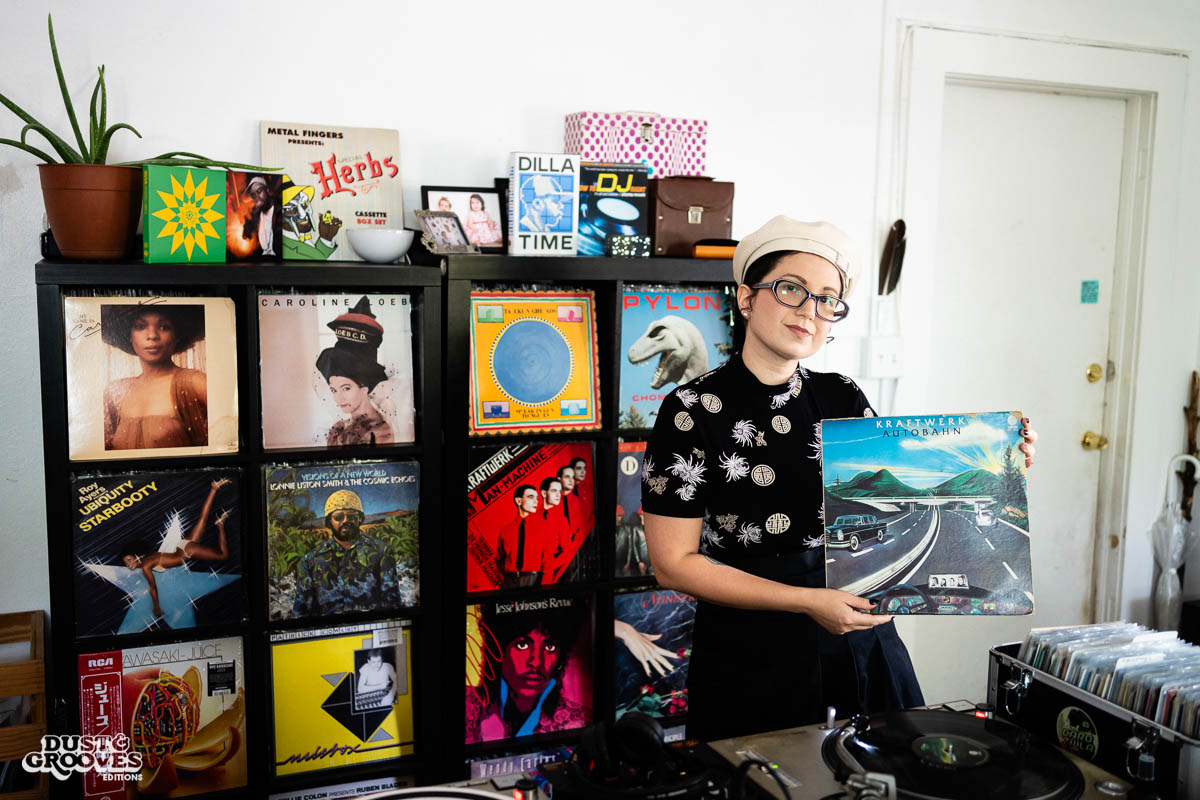
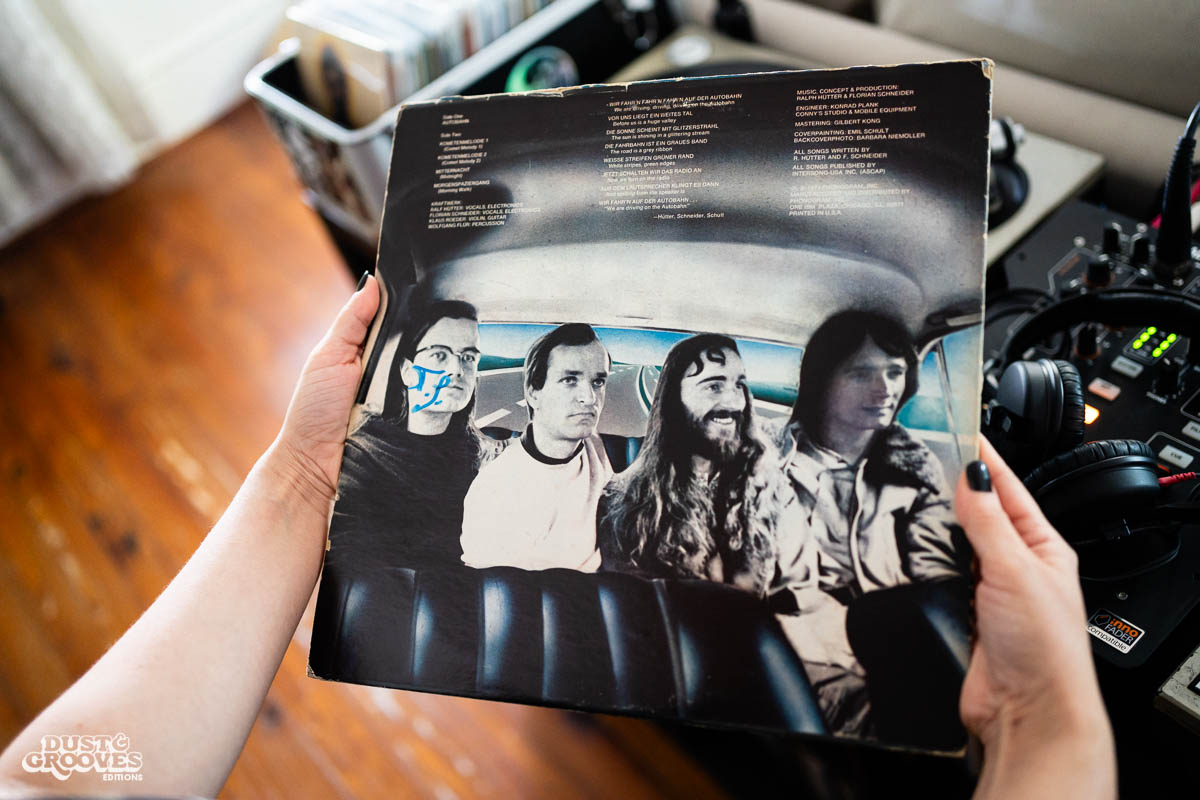
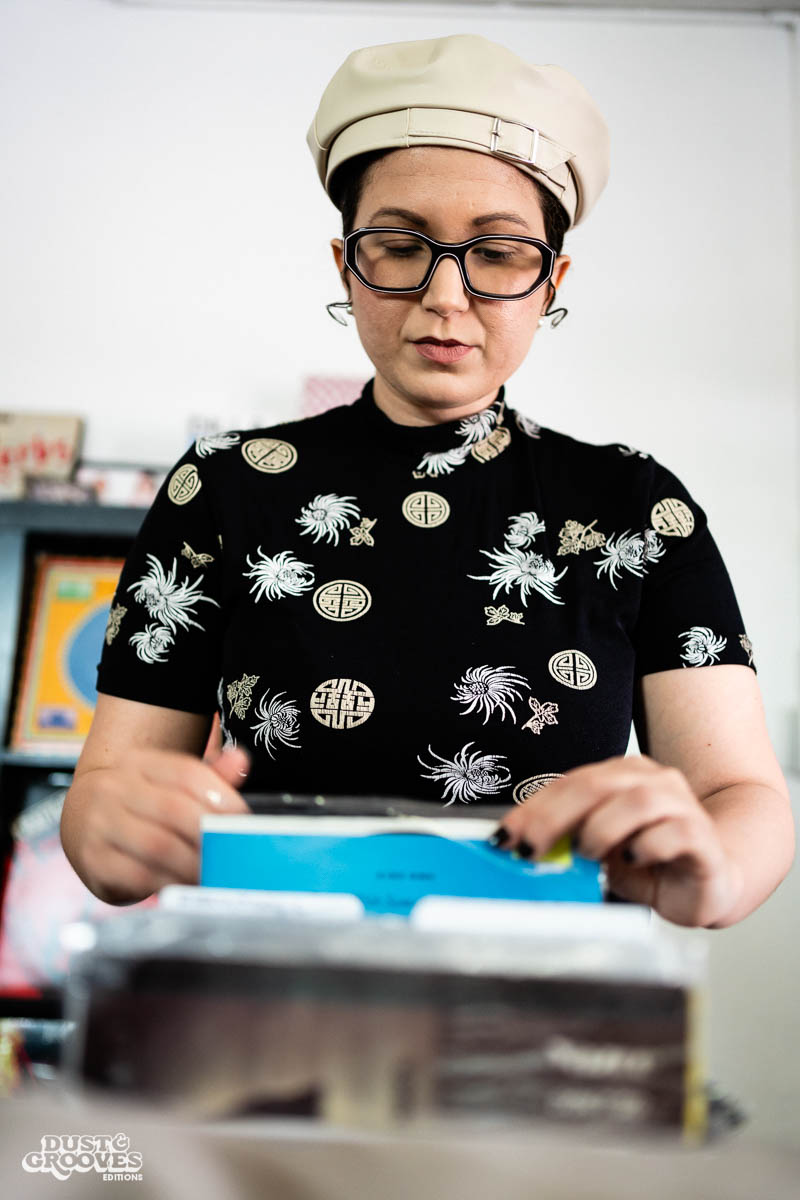
“I could play one genre of music for a whole set like many DJs do, but I don’t want my sets to be limited to one style. I want my set to be like a journey…that’s literally what music exploration is to me, it’s a journey and you can’t limit that journey because music is constantly evolving.”
Are there any records that got you into music as a kid?
A record that I remember cementing my passion for music was Michael Jackson’s HIStory: Past, Present, and Future, Book 1, a CD that belonged to my sister in the early 1990s. I was about seven years old when I found the CD in my sister’s room, put it on the CD player, and upon listening to it, became absolutely obsessed with the album. I mean, this CD had every single Michael Jackson hit back to back, as well as new tracks, and I was really into it! I remember listening to it so often and learning the lyrics to the songs. I wanted to sing like him and dance like him, doing my very childish and poor renditions of a moonwalk and pelvic thrust–dance moves that I still do today. What was even funnier was that even though I was extremely terrified by the zombies and the wolfman costume in the Thriller music video, I still really loved the song and learned the lyrics. After this encounter, I started playing all of my sister’s CDs when she wasn’t home (something she did not like), things like Mariah Carey’s Daydream and Boyz II Men’s Cooleyhighharmony, and I’d read the lyric books and try to learn how to sing the songs. This would later influence me to join the choir in elementary school and fall in love with performing in school recitals.
How about a record as an adult that cemented your passion for music?
The first vinyl record I bought when I started working at Technique Records 5 years ago was Kraftwerk’s Autobahn, a Krautrock album that helped me open my ears up to genres that I had never encountered and appreciate music in a new way. I remember seeing this record in the new arrivals bin and falling in love with the album sleeve, a painting of the Autobahn highway with the music group in the rearview mirror of the car. To me, a good album will take you on a journey, so I love that this record evokes that literally. When I reflect on it, I feel extremely inspired to know that this was the beginning of my journey collecting vinyl records. To this day, when I seek inspiration, I play this album.
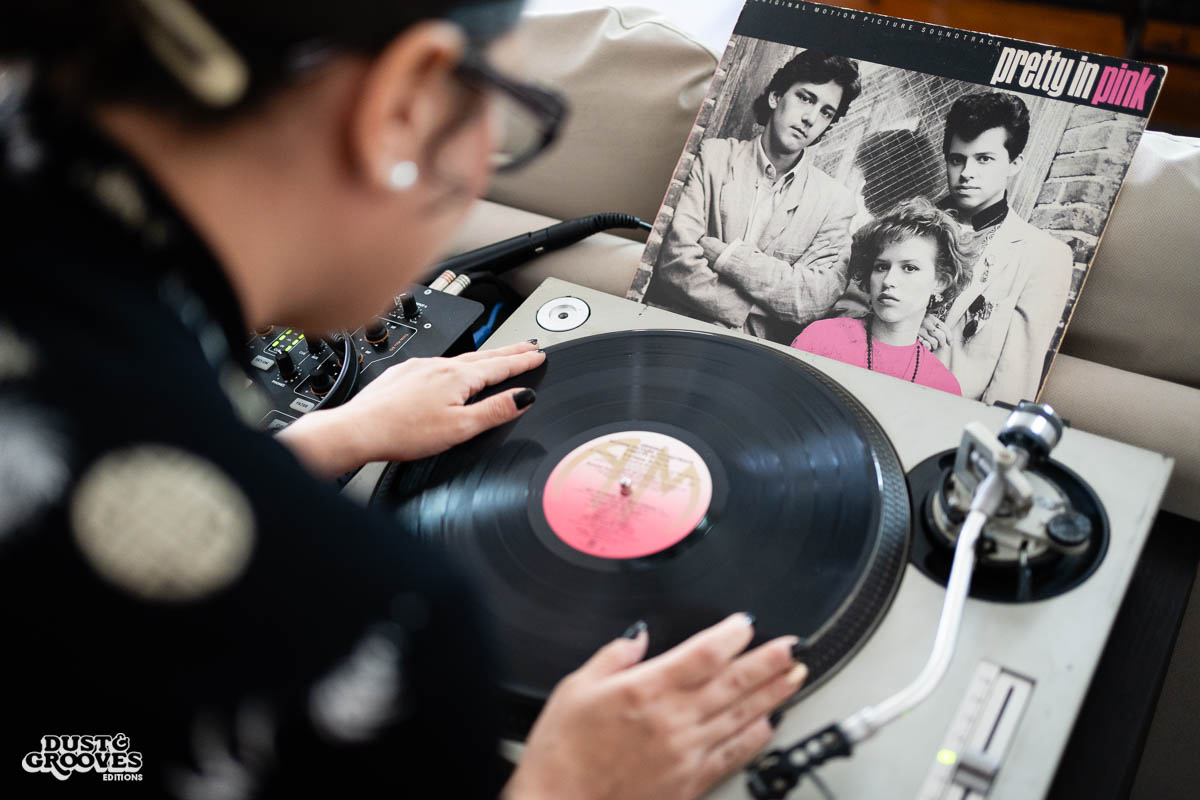
So, the Pretty in Pink soundtrack…
That’s like my life, what I picture my life to be like, or what I want it to be like. I was born in 1992, so I didn’t get to live in the 1980s, but I’m absolutely fascinated by the fashion, music, and culture of the decade reflected in the film. I think it’s such a prime era for the evolution of music, and it’s incredible now to be digging for records and diving into this 1980s sound. It’s just so cool to see how the different genres were inspiring one another, and I really felt like with everything happening socially and politically, people were coming together a lot more. You had new wave artists trying out hip-hop sounds and all these different artists just hanging with each other. Man, it was such a beautiful culture to me that when I was buying this vinyl, my second record, I was like, ”I want to explore new wave. I love this film. I just want to see where this journey is going to take me.
There are so many incredible soundtracks from that era. Do you have any other favorite movie soundtracks?
I have a thing for Halloween, so I have a couple of horror soundtracks. One of my favorite ones to play on Halloween sets is the Christine soundtrack because it has “Bad to the Bone” and these fun post-punk and punk tracks on there. I also have the Return of the Night of the Living Dead soundtrack, another great post-punk album. Oh, the Creepshow soundtrack is fun. I wrote about loving synthesizer music and that album is filled with creepy synths, and the movie itself is such a thrilling 80s cult horror classic.
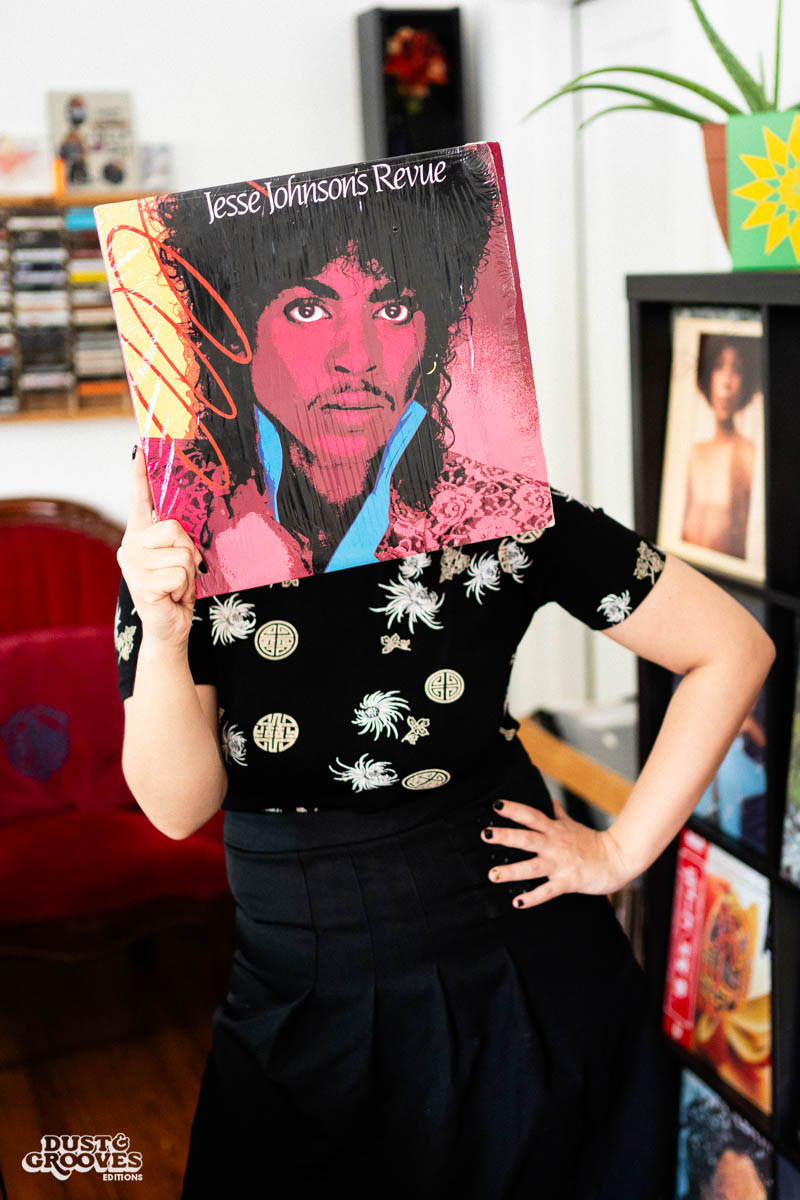
"Look at that Jheri curl! Rule of thumb for me is if the Jheri Curl looks good on the cover of an 80s album, 9 out of 10 times the album is going to be a banger."
Caroline Cardenas Tweet
Any specific genres that you’re specializing in?
I am a really big fan of anything that has a really good synth and groove, so if I have to pick an era, I am definitely specializing in 1980s sounds of all genres: electro, freestyle, boogie, disco, new wave, and synth-pop. I have also been playing a lot of acid jazz, Shibuya-Kei and world sounds, and early 1990s house music too. I just really love this era of music when sounds were influencing one another across genres and helping one another evolve, and people were taking chances not only with their sound and new technologies but even their look, as fashion started becoming more unique and eclectic. The vibrancy of the 1980s and early 1990s is something I hope to bring back into our current lives—just feel good energy and individuality.
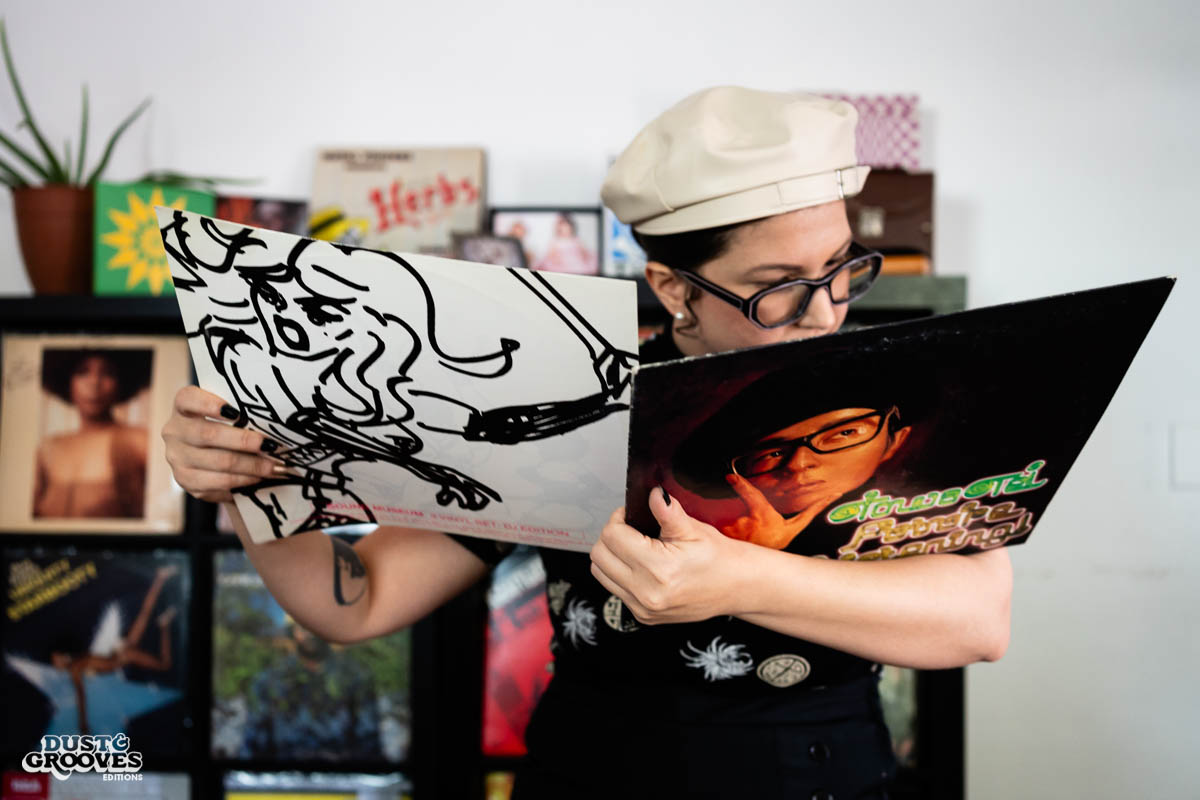
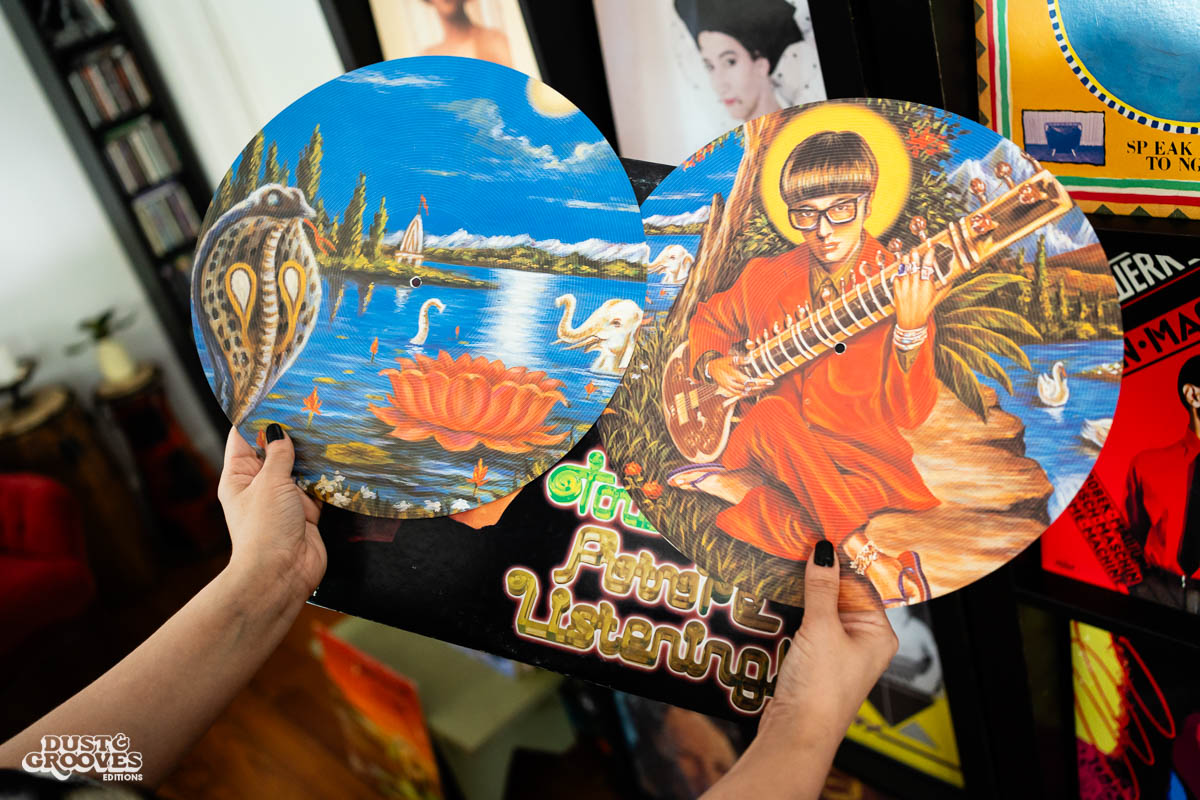
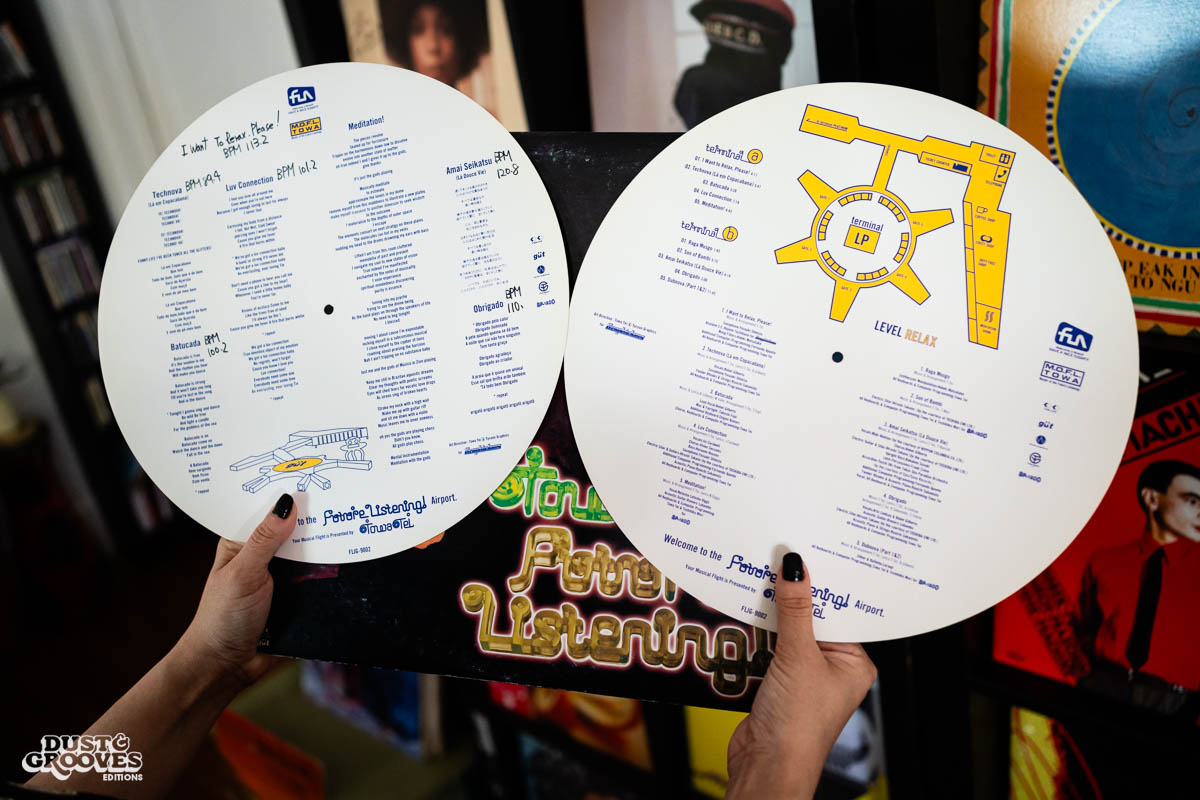
I noticed that you have a lot of different genres in your repertoire. Are there any other albums that combine genres in a way that you find interesting?
I keep talking a lot these days about Towa Tei and his albums Future Listening! and Sound Museum. I feel like I’m obsessed. A lot of people don’t know that he apprenticed under Ryuichi Sakamoto, who is a really big Japanese synth-pop and ambient artist, so he has all these influences. At that time, acid jazz was such a big thing, so his sound incorporates a lot of jazz elements, but it also incorporates a lot of synth-pop & electro elements, Shibuya-kei sounds, some bossa nova, even hip hop. I really connect with artists that explore. It’s the same with David Byrne, for example. He’s an eccentric weirdo who was never scared to push genre boundaries throughout any of his albums, whether with Talking Heads or his solo work.
What made you want to be a DJ?
I had dabbled in it for fun when I began working at Technique Records in 2018, as people would often ask me, “Hey, do you want to play our event and rep the record shop?” Since I enjoy supporting the music community, I wouldn’t say no to a gig. Even though I was throwing myself in the trenches and didn’t know what the hell I was doing at the time, I made it work and was determined to learn as I go. When I started DJing at Dante’s, playing the music that I like and seeing the crowd react so well to it, loving the sounds and dancing along, I just found this newfound courage and confidence I didn’t have at that time to pursue DJing more seriously. I’m a performer, but I’ve always held back. I’ve always been really shy about being in the spotlight, so playing Dante’s helped me burst the bubble I had placed myself in, especially with Rich Medina’s encouragement. He is a DJ that I look up to and aspire to be like in this industry. He’s intelligent, passionate and works hard, and I aspire to be viewed as that caliber of artist in the music industry someday. Technique helped me find my place as a nurturer of the vinyl community through event curation, while Djing at Dante’s allowed me to nurture the community by sharing my passion and love for music with others. DJing has definitely evolved my career in the vinyl industry and I’m grateful for both Technique Records and Dante’s HiFi for helping me realize this passion.
"Rich Medina saw what I did, and he came up to me, he’s like, “Girl, we gotta put a battery pack in you! You’ve got something going on here, you know?”
Caroline Cardenas Tweet
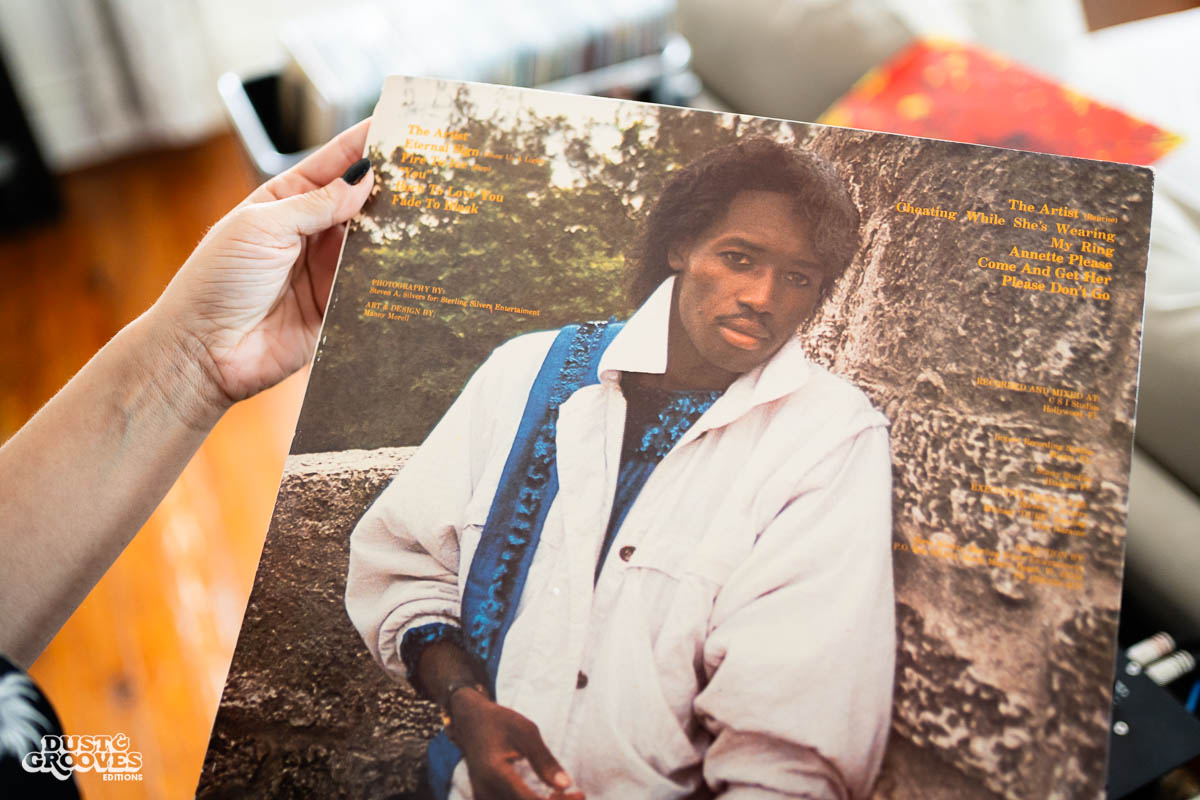
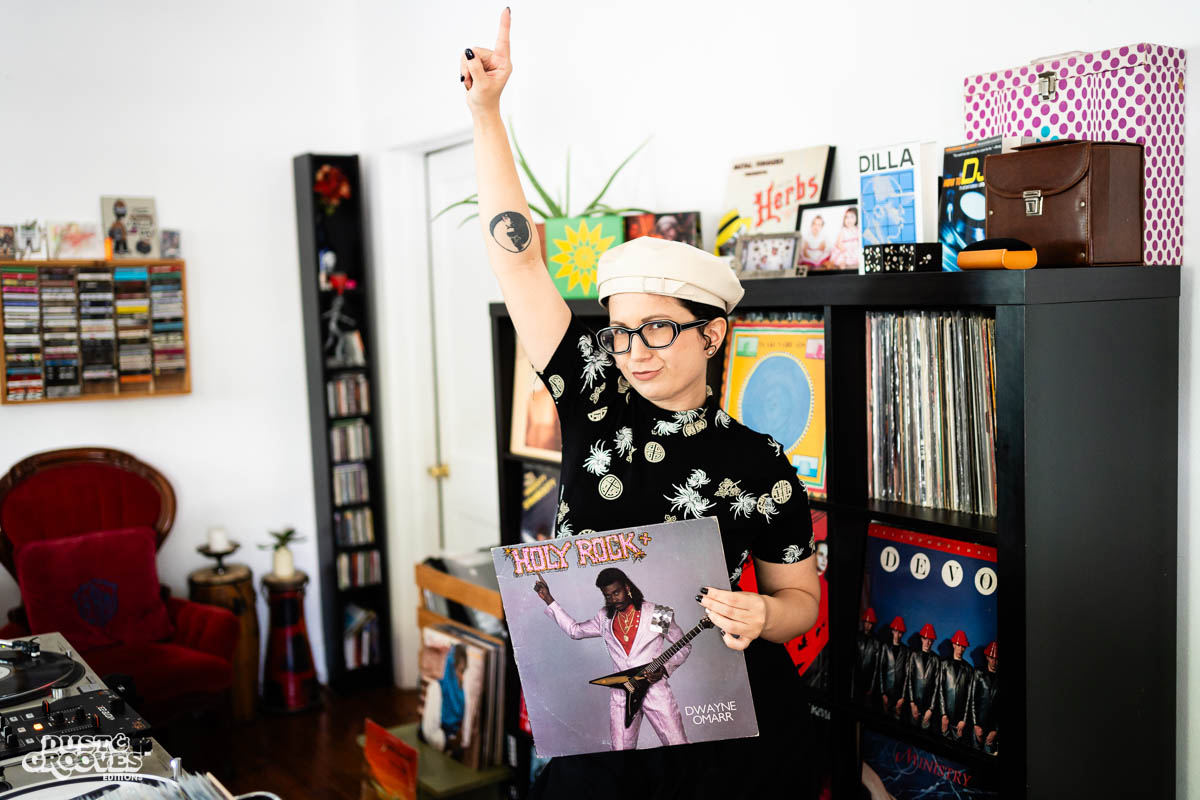
"The world wasn’t quite ready for electro-funk gospel at the time. But Aphex Twin rediscovered Omarr and signed him to his Rephlex label to release an album called Multi Funk in 2011."
Caroline Cardenas Tweet
Going back to your love of various sounds, when you’re doing DJ sets, do you usually pull in from different genres? How do you match up each genre with another to fit the vibe you’re going for?
You’ll see in the mix I sent you guys that I go from krautrock, like very moody, HiFi sound, to these acid jazz and Latin jazz sounds. It’s just about finding a leeway, how you can slowly move on from one sound to another. Sometimes your blends will be a little bit smoother in some genres than others. Sometimes you just have to let a track ride out and then bring in the next one at the end. Once you start getting to those genres that blend together, it’s kind of like you hear that rhythm. There’s a sweet spot for me—it’s like 120 BPM, which you can find in new wave, synth-pop, disco, and all kinds of 1980s genres.
I’m still fairly new to DJing compared to a lot of people. Since I started at Technique, I have been focusing more on event curating and helping other people grow in their journey as DJs. I didn’t ever expect myself to step foot into DJing, but when I got to Dante’s HiFi, they asked Technique to host the night that I had to open. I had already done a couple of DJ sets here and there just for fun—not a lot of blending, more of like, just fading in and fading out tracks. But for Dante’s that night, I practiced for a whole two weeks. I’m like, I need to present something credible. When I did it and Rich Medina saw what I did he came up to me, he’s like, “Girl, we gotta put a battery pack in you! You’ve got something going on here, you know?” And from that moment on, I’m just like, boom, just been really into this DJing stuff. I’m still learning the techniques.
I’ve grown exponentially, but it’s definitely been a journey of learning and being inspired by other people. That’s what’s so special about Ladies’ Night for me. I’m seeing other women on their own journey, and this is a men’s sport, you know, everything in life is a men’s sport. For women to get together on this night and push each other and inspire one another, it’s been such a learning lesson. It’s such a monumental experience for me to be able to learn from other women, see how they grace the decks, be able to pick up on techniques that they do and learn for myself. It’s definitely been a journey in DJing and figuring out: how do I blend all these sounds that I like together and make it work?
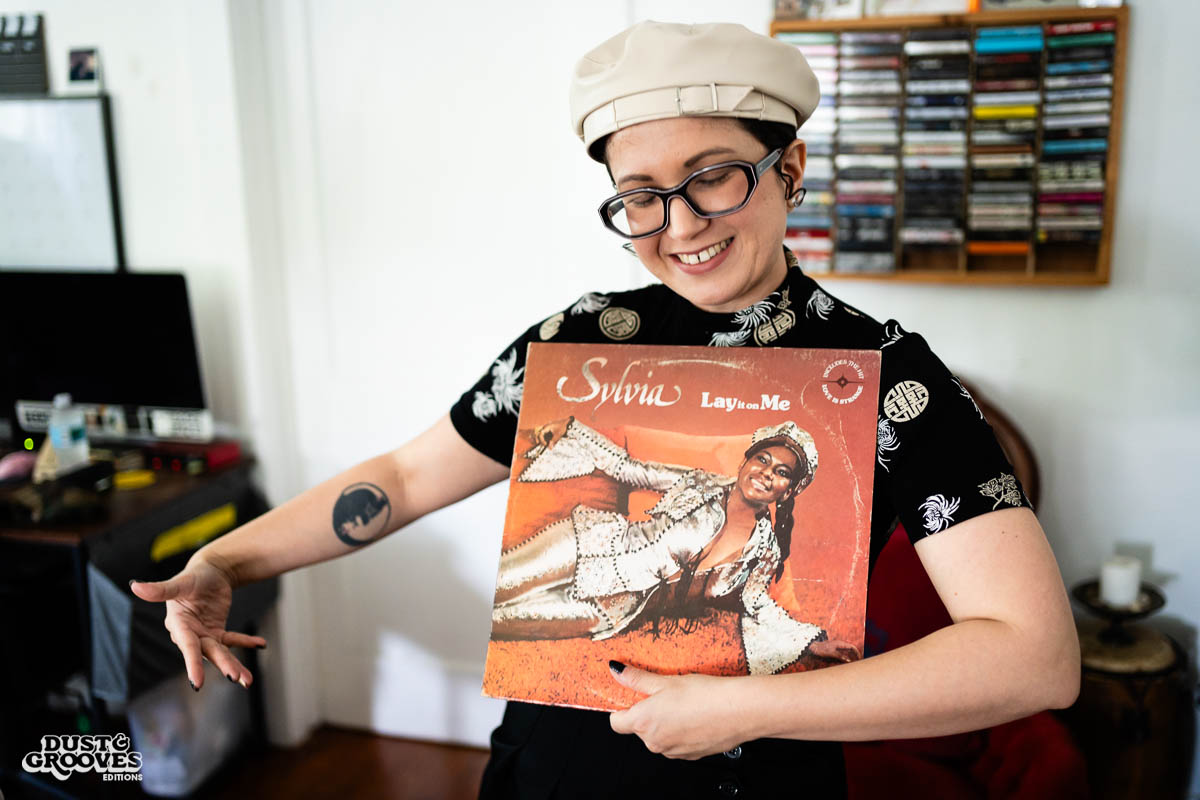
"Sylvia Robinson is a singer, producer, and, most importantly, the founder of Sugarhill Records. She was a huge catalyst in the creation of hip-hop music. A lot of people might not know, but if it wasn’t for Sylvia pushing insistently for the songs to be recorded, 'Rapper’s Delight' and 'The Message' would have never been released."
Caroline Cardenas Tweet
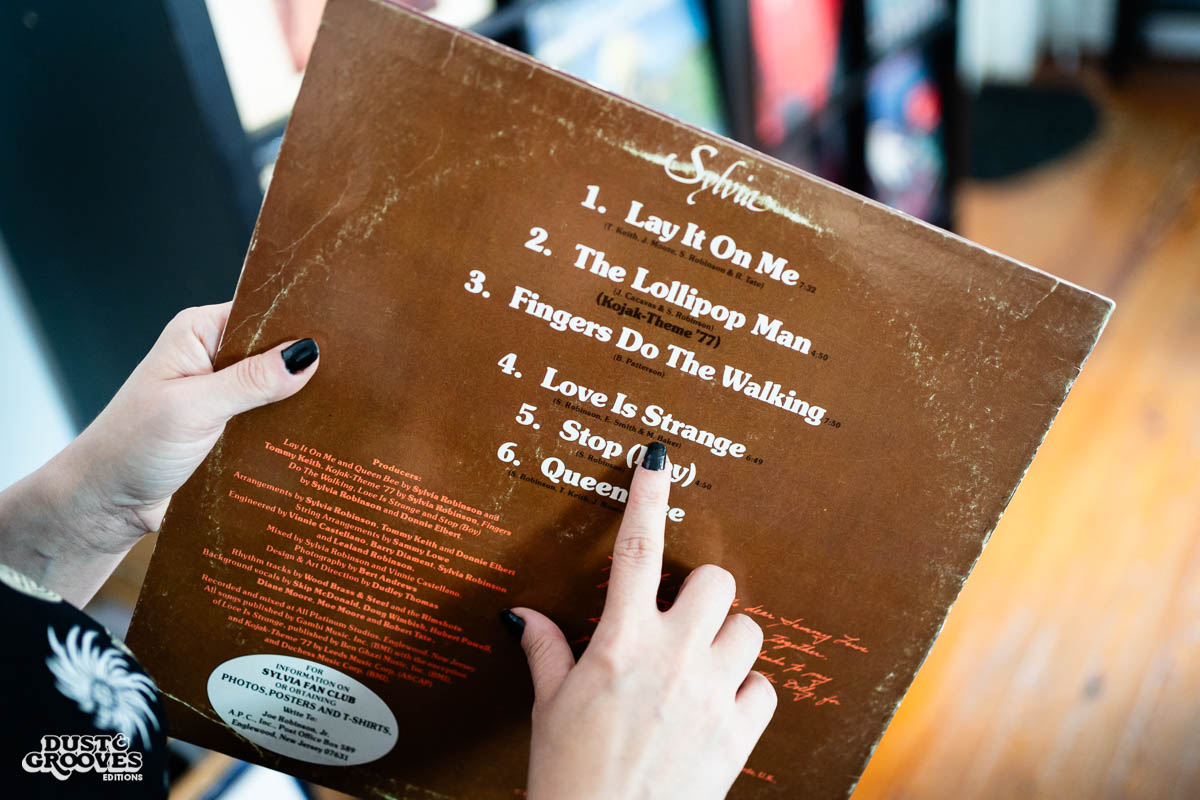
I think that it’s always particularly hard for women to take that leap into doing something like DJing, where you feel pressure to know everything you’re doing and be perfect at it. Tell me a bit more about your “Ladies Night” sets, and which women in music inspire you.
Ladies Night is an open format night where we highlight women vinyl DJs at Dante’s Hifi+. I work alongside Dante’s Hifi+ musical director Rich Medina to curate the night, which is always a fun and sexy time. I believe women bring a special energy to DJing and to the way they listen to music, so it’s great to be able to provide a platform for empowering my fellow female selectors.
I love to play a lot of 1980s music across the genre board on this night—synth-pop, freestyle, electro, boogie, disco, and new wave, to name a few, as well as early 1990s house, Shibuya Kei, and acid jazz—stuff that evokes grown and sexy vibrations. I’ll throw in the occasional Latin and world flavors in the mix, too, since we are in Miami, and you know we need that sazon.
The women in music who inspire me are Wendy Carlos and Sylvia Robinson.
Wendy Carlos is a pioneer in synthesizer music and also an icon for the LGBTQ+ community, as she was the first trans musician in her field, known formerly as Walter Carlos. You might recognize the name from albums such as Switched-on Bach, and soundtracks for Tron, A Clockwork Orange, and The Shining. Her work in the synth field is a huge inspiration for the evolution of synthesizer music, and I highly praise her for being a positive influence on being true to yourself and who you are.
Sylvia Robinson is a singer, producer, and, most importantly, the founder of Sugarhill Records. She was a huge catalyst in the creation of hip-hop music. A lot of people might not know, but if it wasn’t for Sylvia Robinson pushing insistently for the songs to be recorded, “Rapper’s Delight” and “The Message” would have never been released. People were saying no to the record because it had a slower groove than the usual tracks being released at the time. She strongly believed in these two songs and worked hard to find artists who would give the tracks a chance, which ended up being Grandmaster Flash and the Furious Five & The Sugarhill Gang.
A quote about Sylvia Robinson that sticks out to me is one by Melle Mel. He said, “For whatever it’s worth, Sylvia Robinson is not only hands-down the greatest female producer ever, but one of the best producers period. Not only did she produce ‘The Moments’ and her own hit records, but she produced ‘Rappers Delight’ and she produced the record that would change the face of Hip-Hop and that was ‘The Message.’ That song is the difference between every other group and us.”
Sylvia Robinson is a woman in music who left such a powerful and inspiring legacy behind due to her love and passion for music and expression, something I really aspire to do. As a woman in music, it feels good to know that a powerful and inspiring woman like Sylvia existed in the industry. It drives me to become someone like that for this generation.
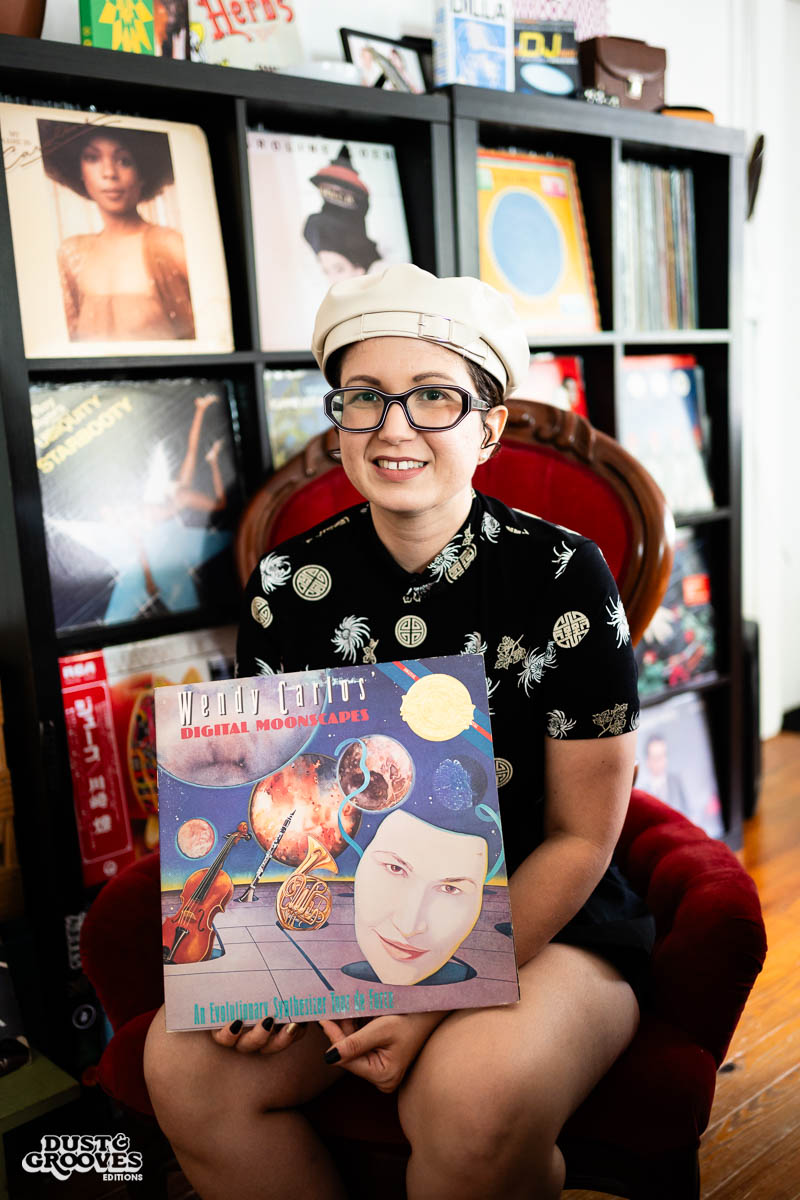
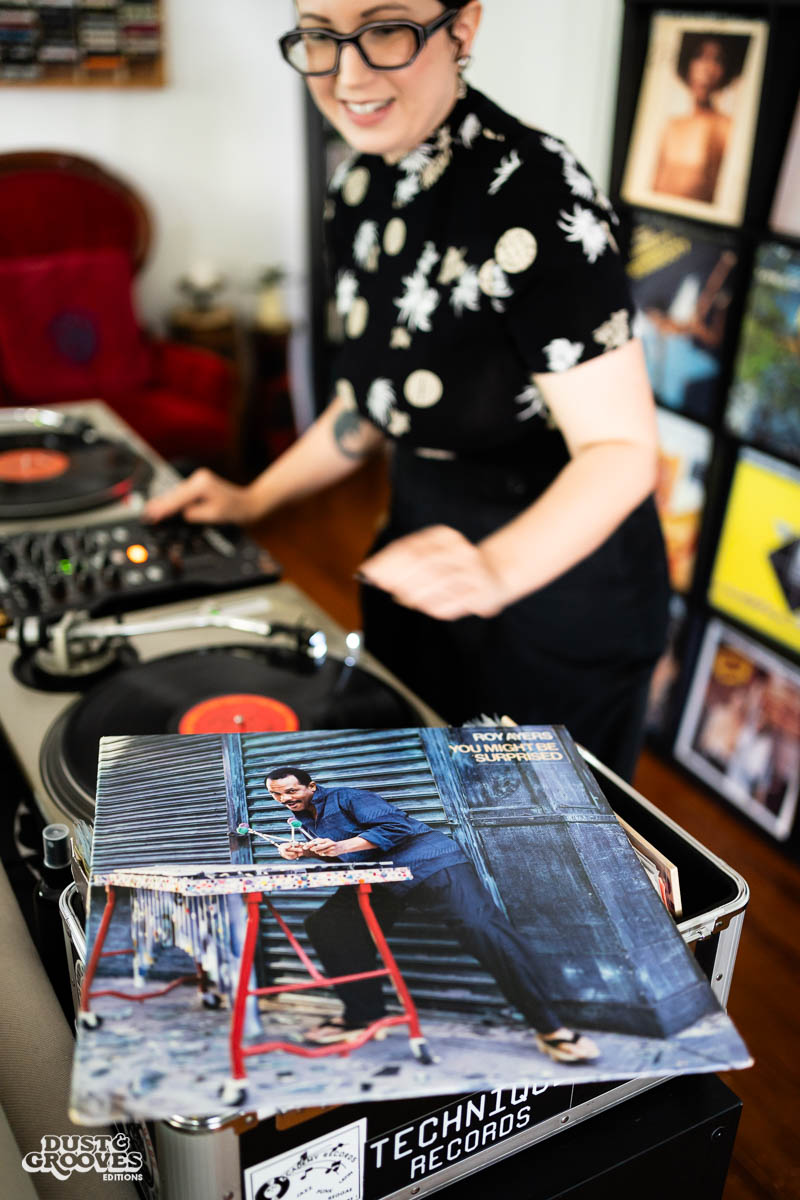
I love what you said earlier about nurturing through music. What kinds of sounds do you connect with most? How do you connect and nurture your audience through sound?
I hate being limited to one sound. I feel like DJs nowadays are like, “Oh, you have to be a house DJ, or you have to be house and electronic or techno.” I’m an Aquarius with a Gemini moon. I have no boundaries. I cannot be put in a box. I love traveling, I love being exposed to different things and different cultures. Sound exploration is just what I sonically connect to at whatever time. Right now, I’m exploring a lot of acid jazz and Shibuya-kei, like Japanese sounds with a Japanese boogie. That’s the next step of what I’m studying from the 1980s sound—the evolution of 1980s synth pop and all that into this kind of classy, groovy rhythms that just make you feel good and sexy. I feel like a lot of people right now want to feel sexy, they want to feel good. They don’t want to think about all the bullshit in the world that we’re constantly reminded about on the internet. So, when I look for music and when I play music, that’s what I’m looking for—and also, sounds that you might not hear all the time. I could play one genre of music for a whole set like many DJs do, but I don’t want my sets to be limited to one style. I want my set to be like a journey…that’s literally what music exploration is to me, it’s a journey and you can’t limit that journey because music is constantly evolving.
Does managing a record store and interacting with the vinyl community deepen your appreciation of vinyl?
Absolutely. Not only have my musical tastes and knowledge evolved, but my appreciation for the vinyl community has grown significantly too. In the last five years, I have curated and hosted hundreds of vinyl-related events at Technique Records. From in-store signings, DJ sets, workshops, and album releases, I feel grateful to say that I have made long-lasting relationships with people who have taught me so much about music and the vinyl industry. I have also seen the growth of many Miami DJs, some even getting their start within Technique, and it is humbling to have been given this opportunity to help others grow. I feel inspired by everyone I have encountered during my pursuit of vinyl and DJing vinyl.
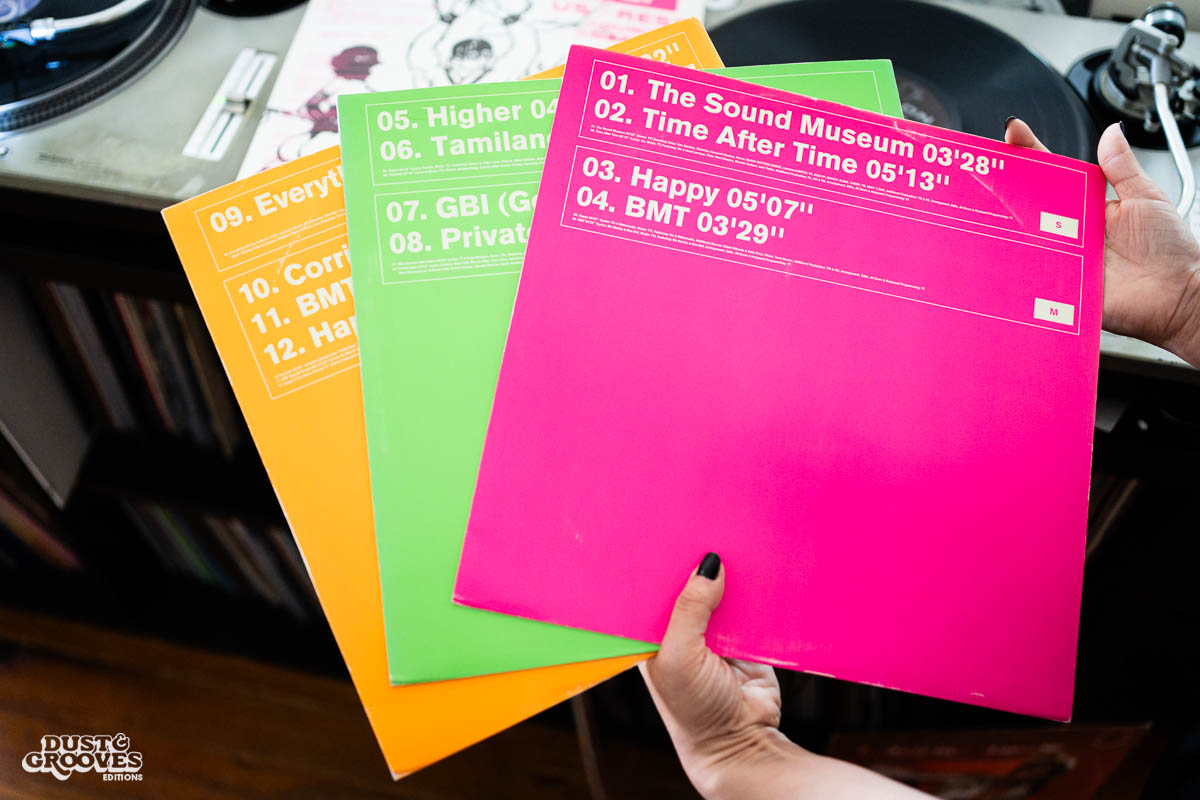
Say you’re in a record store, what’s the first genre you go to? What do you try to find?
A rule of thumb for every record store—because they all have them, whether it’s small or big—always hit the new arrivals bins, the USED stuff that just arrived at the shop. I typically find things in there that I either have been looking for or I don’t know, and I’m just like, “This looks dope, I’m gonna check it out.”
Now as a DJ, I am looking more for specific producers. I’ve been on the hunt lately for a lot of Larry Levan cuts. He died really young, and he was a big pioneer for disco and house music. His music can blend with any sound—something that he would do a lot during his DJ sets at Paradise Garage. He would always fit in new wave and synth-pop sounds with disco, and that’s what people admire about him; he would break boundaries and blend different genres. So, I’ve been digging for a lot of tracks by him.
I’ve also been searching for disco, acid jazz, jazz-funk records, Shibuya-kei, 90s house, electro, freestyle, NRG, new wave, and boogie. Just seeking less vinyl for at home HiFi listening and more for dancing these days.
Lastly, if you like 1980s boogie and disco, a rule of thumb for me that has never let me down is if the singer is on the cover with a Jheri curl, the record will be a smash hit!
Any memorable stories behind a record buy or one that you took a chance on?
I took a chance on Roy Ayers’ “You Might Be Surprised” and boy was I. I thought it was another one of his disco, jazz funk records, but it was not—it was a jazz boogie album with several co-productions by James Mtume. I’m like, what!? This is amazing and he looks so good on the cover. It looked like it was gonna be something wacky—look at his shoes! And the art on the marimba, I love the poses. To me this album is a must have for Roy Ayers fans.
Last October at Technique Records, the owner, Mikey Ramirez, acquired a record collection from legendary producer Arthur Baker. He’s a producer/DJ I really admire as he had such a huge role in the 1980s producing songs such as Afrika Bambaataa’s “Planet Rock,” Planet Patrol‘s “Play at Your Own Risk”, and New Order’s “Thieves Like Us” to name a few—all songs that I constantly have in rotation during DJ sets. What was truly special about this record buy was that I had the opportunity to host Arthur Baker for an in-store DJ set on Record Store Day to highlight his collection dropping within the shop. At one point in the night, I remember hearing the beginning melody of Hall and Oates’ “Out of Touch” playing on the speakers and immediately running inside with goosebumps to watch Arthur play. I just had to purchase a copy of the single from his collection for myself after that. Hearing Arthur Baker playing his own timeless productions within Technique was super inspiring to me, and I actually shed a tear that night because I couldn’t believe that I had the honor to host such a legendary musician in the shop. It’s always been my passion to be involved in music, and I’m so thankful for Technique Records for being a space where I could learn so much about the music industry and be able to host some of my favorite musicians like Arthur Baker, Egyptian Lover, Large Professor, and more.
I also took a chance on this compilation called “BIPPP: French Synth-Wave 1979/85” because it had one song on it called “Roman Polaroid Photo” by Ruth that I really love; the original album with that song on it is $200, so I was able to get the song that I wanted at a fraction of the cost. A lot of the other songs on there are really cool because I don’t just explore 1980s America; I like Japanese, but I also like 1980s sounds from Germany, I like 1980s sounds from France, and I even like 1980s Italian sounds too. It’s fascinating that in that era—there was no internet, and there was no way to connect across seas that easily. So for musicians to be creating similar-sounding music on the other side of the pond, yet having their own twists and approaches to them, was incredibly fascinating. It’s not like now—it’s easy to replicate a sound because you can access it so quickly. Back then, you either had to buy an album somewhere, bring it back home, and be like, “We’re going to be influenced by this,” or you’re just discovering it by yourself. It’s incredibly cool.
Is there a series of records by a specific artist that you are trying to complete?
Yeah, I’m almost done with the B-52s. I’m obsessed with them. I just love their style and they’re fun. Same thing with the Talking Heads. Azymuth is also a band that I’ve been collecting as many records as I can from. They’re a Brazilian Jazz Funk group, and they’re amazing. They have a lot of synths in them. It’s funky, it’s groovy. There’s some cool shit that they have, so I like them because no matter what the set is, I could fit Azymuth in as an intro track. They’ve got so many different moods. For a Brazilian jazz-funk band, I would love to have all their records. I have about four right now.
Is that one of your favorite set-openers?
Oh, yeah, anything by Azymuth. I really like Azymuth’s “Just Looking Around” and “Last Summer in Rio.”
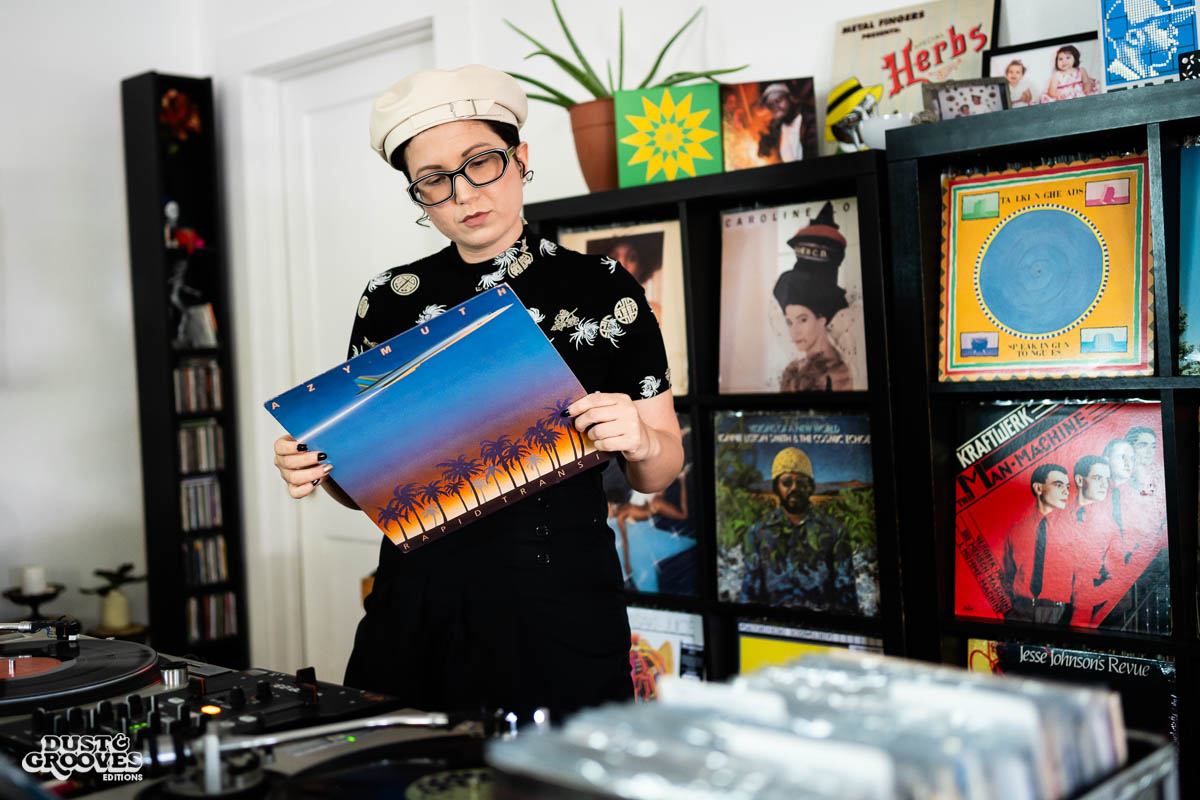
What’s the most exciting record sleeve you own? What do you like about it?
Pylon’s Chomp. With the ridges on the top, it is as though the T-Rex has taken a literal “Chomp” off the sleeve. The band actually lost a bit of money making this unique design, but I think it was worth it because it stands out on the record shelf and it’s a good conversation starter. Plus, the album is such a great exploration of the new wave/post-punk sound, so if you’re looking for something fun yet angsty to listen to, check this album out.
A timeless record. One that you think will be relevant forever.
The first Tom Tom Club album, Tom Tom Club. Not only has “Genius of Love” been sampled many times in hip hop and topped the RnB charts during its time, but it’s an incredible album from beginning to end with catchy lyrics and grooves. The band was founded in 1981 by husband-and-wife team Chris Frantz and Tina Weymouth as a side project from Talking Heads. So while there are elements of David Byrne’s sound, there’s definitely a unique twist from the duo, especially with a female vocal lead. Not to mention, the song “Wordy Rappinghood” features Tina rapping, which, aside from Blondie’s “Rapture,” released that same year, hadn’t yet been done in New Wave music with live instruments. That history makes it an album that will remain timeless.
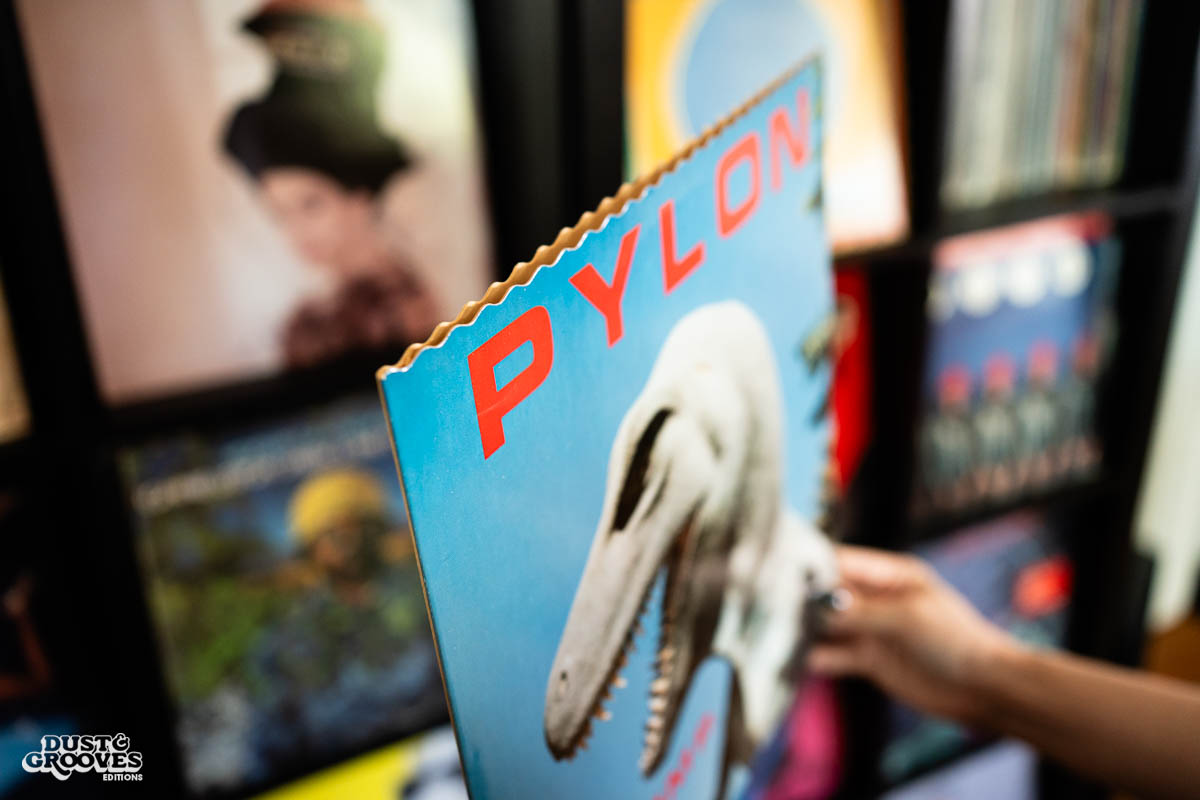
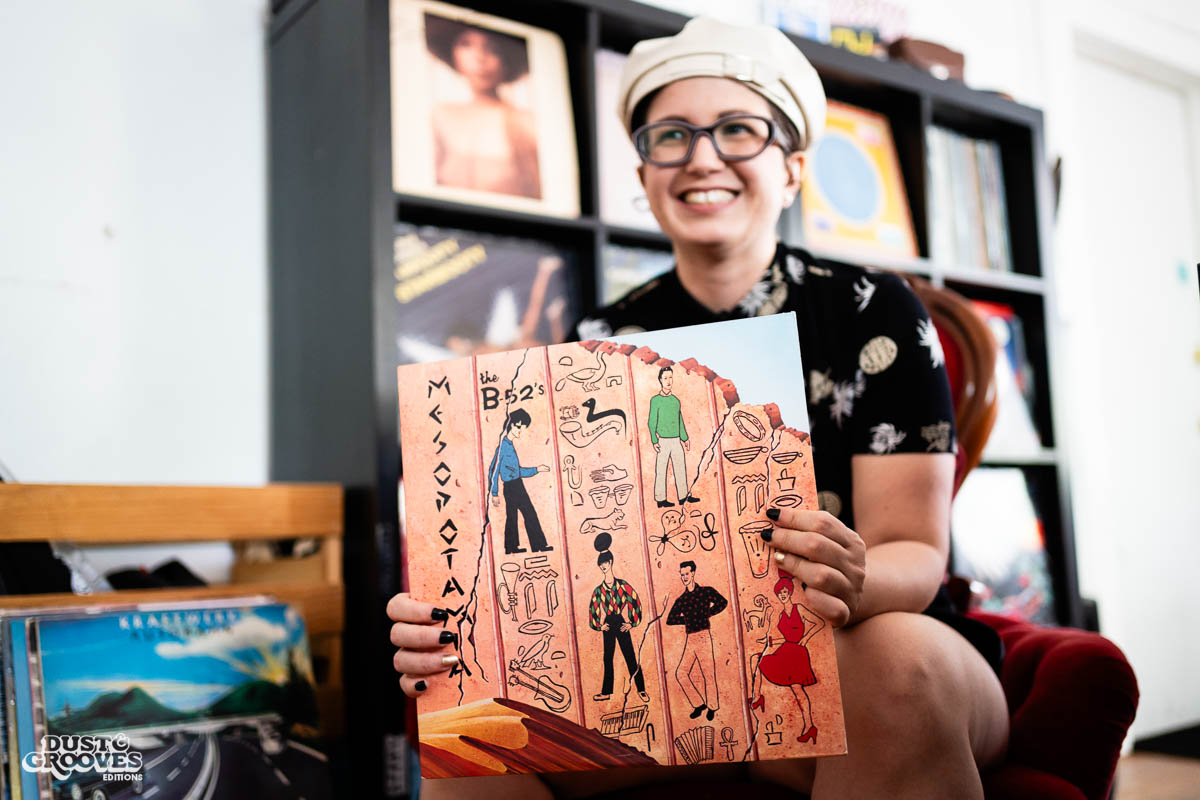
What would be your comfort record? One that will always put you in the right place. Gives you good energy and never fails you.
B-52s – Mesopotamia. A playful and edgy new wave record by my favorite eccentric and fashionable band, produced by another favorite oddball musician, David Byrne of the Talking Heads. This album is filled with catchy lyrics and fun upbeat grooves to get you pumped.
Any records that you have been particularly obsessed with lately?
I always joke that my taste changes with the seasons, but these days I have been playing a lot of 1980s synthesizer-driven genres, like synth pop, electro, freestyle, disco, boogie, and new wave. I love labels like Solar, Vanguard, Cutting Records, Peoples Potential Unlimited, and Dark Entries, to name a few. I also enjoy throwing in some early 1990s house, trip-hop, acid jazz, jazz-funk, Shibuya-Kei, and other world music in the mix. Anything that feels grown, sexy, and makes you move.
I am currently obsessed with Mongo Santamaria’s Latin jazz albums and his covers of modern pop songs of the decades, specifically the song “Smooth Operator” on his Soy Yo album. Highly recommend that track, so I featured it in the mix.
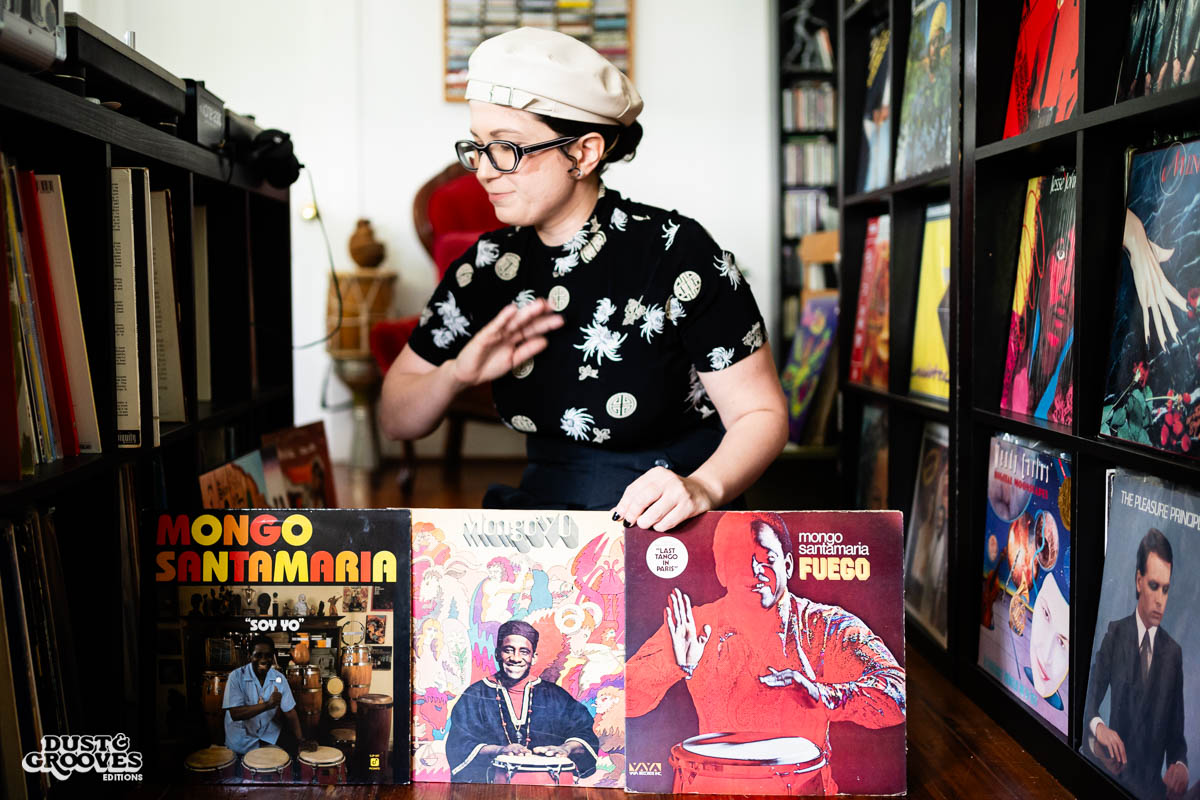
What do you look for in a record? What is it that makes vinyl special for you?
When digging for records, I look for something with a good groove that will inspire me and others to dance—or an album that evokes emotion and has strong themes and/or lyrics that I can relate to, as I find a lot of therapy through my connection with music and its interpretation. I love anything that connects me to my roots, like the sounds from Cuba and Latin America, such as works by Mongo Santamaria and Grupo Irakere. I also like taking chances on an album with great artwork on the sleeve and finding that the music is just as good as the cover art—because vinyl is not just about the music, but the whole package.
I think what’s special about vinyl is the whole analog and physical experience you get when you are shopping for music: the journey of digging through the bins, finding something that you have never heard or have been searching for, appreciating the album art, and the inserts, and touching the music as you place it on the record player for listening. It’s quite a poetic and intimate relationship that I otherwise wouldn’t have with digital music.
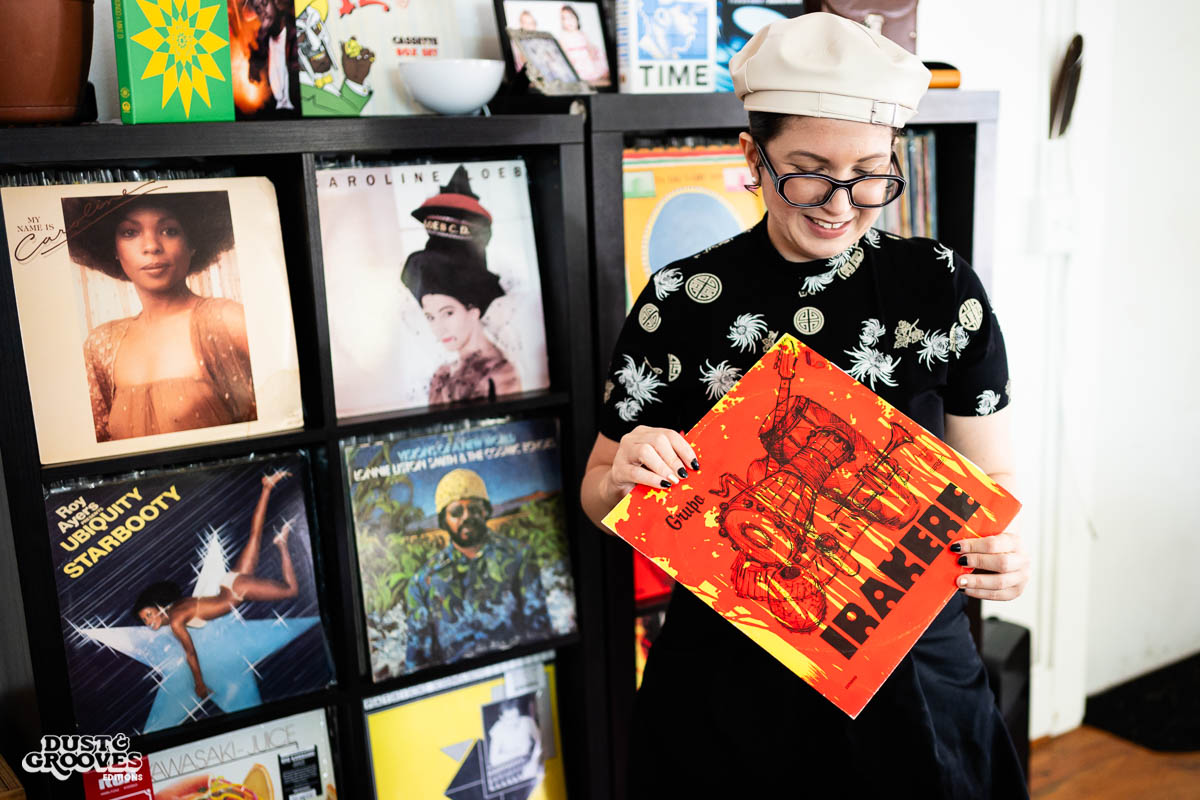
Can you expand on the physical nature of vinyl, and how that translates to the community you operate in?
I’m realizing in my life now that everything’s so mass-produced, and nothing’s timeless like it used to be. I feel like I’m reflecting on the history of music, and vinyl really helped people. Vinyl and physical formats helped music become timeless. It helped artists make timeless music because you really put a lot of thought into what you were going to press. It wasn’t just like, “I’m just gonna make something and release it next week for a quick buck.” It was like, “We’re gonna pay a shit ton of money for the studio session or the studio musicians.” A lot of money was invested, so people put their hearts and souls into what they were making. That itself is intimate and beautiful. There was so much thought about the artwork that goes behind it since you’re not just looking at a digital image. You get liner notes, you can read about this particular project, you have inserts in some of the records—you don’t get that with digital music. You don’t get to go to a record shop. Like, yeah, you get to scroll, but you don’t get to go to a record shop, look at this vinyl, and be like, “What the fuck is this about?”
Sun Ra’s Fireside Chat with Lucifer—we get Lucifer with a nuke inside of his head, you know, what is that? And then you play it and you hear this track “Nuclear War,” and it’s like this funny call-and-response song about people: “They’re talking about/nuclear war/if you push that button/your ass gotta go.” They’re talking about something at that time that was so incredibly worrisome for people with the Cold War. I would’ve never been intrigued by what this song was. This physical product, you connect with it so differently. I think it’s poetic, I do, to be able to go to a record shop not knowing what the hell you’re looking for. Maybe you have an idea, maybe you don’t. Just digging in, connecting with art covers sleeves, taking them out, putting it on, listening to it, and you’re like, “I need this. I never knew what the hell this was; I need it now.”
That connection is so beautiful…I always tell people who come into the shop that ask, “What should I do to make my music, you know, reach my fans better?” Like, yo, make a cassette tape, make a CD. If you can’t afford vinyl, make a physical format, because you’re going to be able to curate a cool piece of art that people can buy from you, you can make money off of your music—not just on Bandcamp. You can give your fans an object that they will keep for a long time, and you see a lot of dope artists doing that. You know, now they’re making vinyl left and right… vinyls aren’t going anywhere, I think it’s only going to keep growing. I think it’s beautiful that in this era where everything’s on the phone, we actually want to touch things, and we want to own physical things again—not just anything, but things that are meaningful to us. Its more intentional.
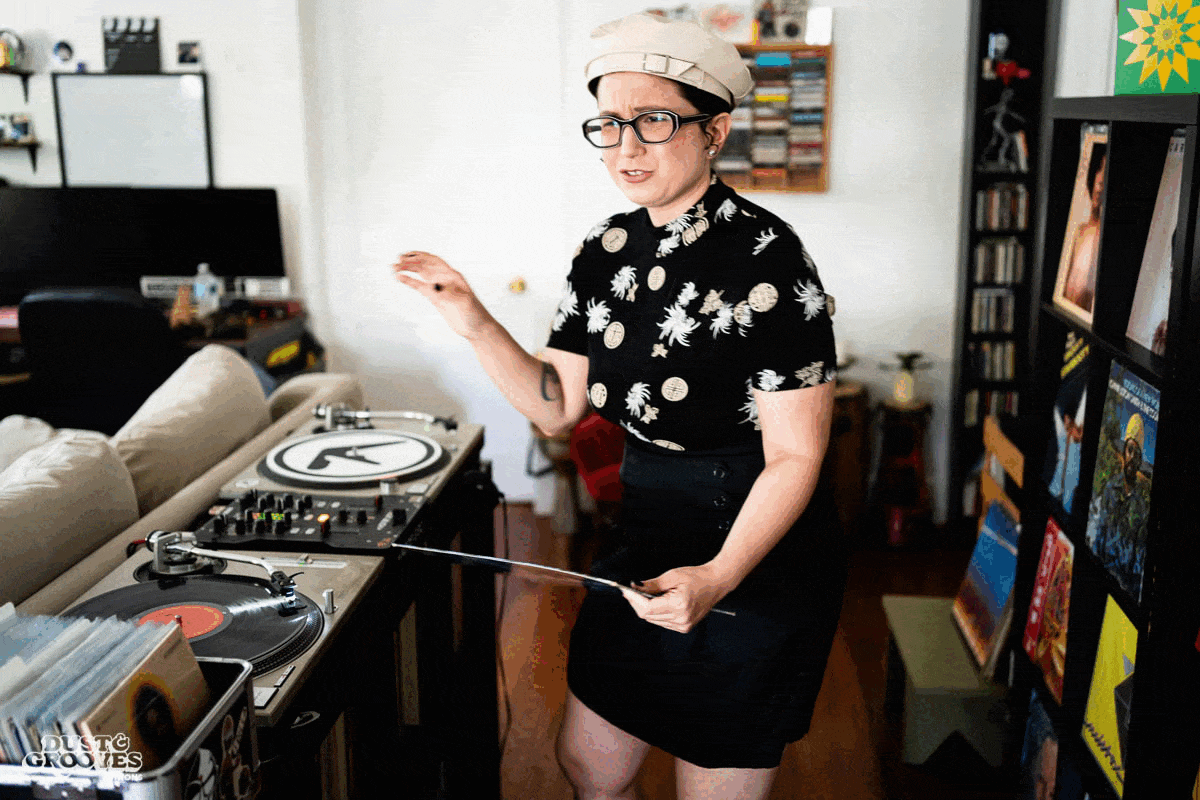
Miami-born vinyl selector and emcee, Caroline Cardenas aka Carozilla enjoys journeying through sound, from synthesizer driven music from the 80s and beyond, rhythmic latin-jazz-boogie-disco sounds, and all music that is thought-provoking or makes you want to dance, expect no limits during her exploration of vinyl selection. Catch her every month at her Dante’s Hifi+ DJ residency holding it down as host and cocurator of Ladies Night alongside Musical Director Rich Medina.
Carozilla
Further Adventures in Record Collecting
Dust & Grooves Vol. 2
Caroline and 150 other collectors are featured in the book Dust & Grooves Vol 2: Further Adventures in Record Collecting.
Book drops October 15, 2024
Presale opens September 1.
Become a member or make a donation
Support Dust & Grooves
Dear Dust & Groovers,
For over a decade, we’ve been dedicated to bringing you the stories, collections, and passion of vinyl record collectors from around the world. We’ve built a community that celebrates the art of record collecting and the love of music. We rely on the support of our readers and fellow music lovers like YOU!
If you enjoy our content and believe in our mission, please consider becoming a paid member or make a one time donation. Your support helps us continue to share these stories and preserve the culture we all cherish.
Thank you for being part of this incredible journey.
Groove on,
Eilon Paz and the Dust & Grooves team


